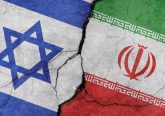“Without branding all generals and statesmen as murderers or thieves … a portrait of war makers and state makers as coercive and self-seeking entrepreneurs bears a far greater resemblance to the facts than do its chief alternatives: the idea of a social contract, the idea of an open market … the idea of a society whose shared norms and expectations call forth a certain kind of government.” Charles Tilly, 1985
As Afghanistan’s election season marches on, Charles Tilly’s unsavory portrait of statesmen as “coercive and self-seeking entrepreneurs” seems eerily resonant. Observers worry that despite record turnout by voters, the campaigns featured opportunistic deals between power brokers with checkered backgrounds and that those bargains will determine the election’s ultimate outcome. Indeed, over the past decade foreigners and Afghans alike have bemoaned the slippery and self-interested machinations of Afghanistan’s ruling class. The international community has invested a great deal to help the Afghan state move toward the ideals of good governance we associate with liberal democracy in the West. Why has progress been so halting?
Sociologists, political scientists, and economists argue that state-building has alwaysbeen an untidy, often violent process in which repeated elite confrontations eventually lead to political bargains. Even when the fighting ends, of course, competition for political power continues, with muscular power persisting as the deal-maker and deal-breaker. In the above passage, political sociologist Charles Tilly was writing not about modern-day Afghanistan, but about early European states where functional governments took centuries to emerge. It is not surprising that European-style governance has not arisen in Afghanistan within a short decade.
The international community’s intervention in Afghanistan was not the first attempt to introduce democracy to a conflict-ridden country. Bold, international state-building projects have been attempted across the globe in the past several decades: the Balkans, sub-Saharan Africa, Southeast Asia, Latin America, and more recently Iraq. As the foreign-sponsored leaders in this latest incarnation of a well-established model, President Hamid Karzai and his government ticked off the boxes on the now-standard“post-conflict reconstruction” to-do list. And with foreign support, a number of institutions and processes were started that undeniably brought political representation, human rights protection and electoral participation into the relationship between Afghanistan’s government and governed for the first time.
To read the rest of this post, please continue reading on the website of The Monkey Cage, where this piece first appeared.








No Comment